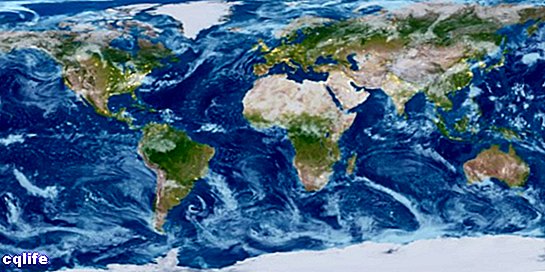- What is geography?
- Object of study of geography
- Importance of geography
- Branches of geography
- Auxiliary Sciences of Geography
We explain what geography is, what is its object of study and the characteristics of its branches. Also, its auxiliary sciences.

What is geography?
Geography is the social science in charge of description and graphic representation of planet Earth. He is interested in his scenery, territories, places, regions, populations and the ways in which all these elements interrelate. Its name comes from the Greek gea, "Land", and graphos, "writing".
Geography is one of the social Sciences Older. He was born in the Ancient Greece thanks to the work of Eratosthenes (276-194 BC) and the historian Herodotus (484-420 BC), who were particularly interested in the study of the different regions of the land surface known for its culture, as well as the populations that inhabited them.
Since then until today, much has changed in the way of understanding our planet, but there are still four main traditions historical research geographical origin from antiquity:
- Spatial analysis, which encompasses natural phenomena Y humans;
- Area studies, focused on places and regions;
- The relationships between humans and land, which does not require further explanation;
- Earth sciences, focused solely on the dynamics of the planet.
Geography is often considered the "world discipline" and the "bridge" between the natural Sciences and the human sciences.
Object of study of geography
Broadly speaking, geography studies planet Earth. This encompasses a huge set of processes, dynamics and elements both natural and human. It has a rich multiplicity of perspectives, depending on the particular focus of the study.
Geography is a dynamic discipline that draws on other social sciences in order to better understand the way in which the world today was built: both geologically and humanly. In that sense, geography tries to make a everything of our planet.
Importance of geography

Geography is one of the social sciences with the greatest application in the different fields of developing of the world. It is used both in the accumulation of knowledge to understand what dynamics are underway in today's world, and in the identification and resolution of problems specific between the human being and the planet he inhabits.
In addition, it is an important point of contact between Social Sciences and the calls Exact Sciences. In other words, his field of knowledge incorporates tools and knowledge that no other social science even contemplates.
Branches of geography
Geography has an enormous diversity of branches, but broadly it is divided into two main perspectives:
- General geography. As its name indicates, it aspires to understand the planet as an organic whole, although from various specific perspectives. For this it is subdivided into:
- Human geography. Dedicated to the study of Humans and its communities, cultures, economies and interactions with the environment. In turn, it covers the geography of the population, rural geography, urban geography, economic geography, political geography, social geography, historical geography, cultural geography, etc.
- Physical geography. Rather, it is dedicated to the study of natural processes and factors that occur in the world, whether in the atmosphere, the hydrosphere wave geosphere. Covers the climatology, paleogeography, hydrology, hydrography, glaciology, etc.
- Regional geography. Understand the planet from its subdivisions into countries, nations, state, regions, counties, etc., at different scales of detail and precision.
Auxiliary Sciences of Geography
As in other social sciences, geography incorporates tools methodological, theoretical or procedural from other areas of study, for the enrichment of their perspectives. They often inaugurate novel lines of analysis.
Some of these auxiliary sciences are the Political Sciences, the Astronomy, the Economy, the History, the geology, the biology, the Demography, the Sociology or Geometry, to name just a few.
